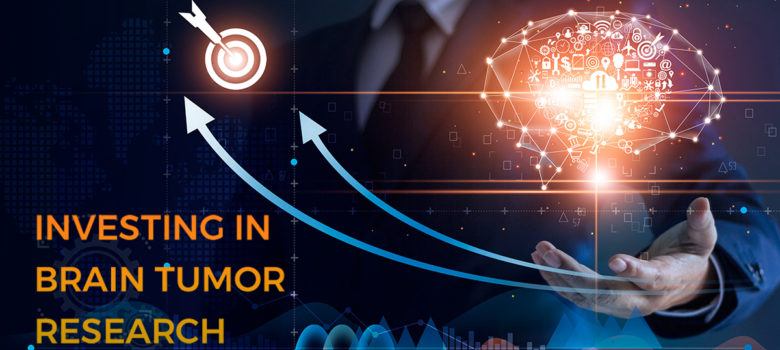

ZBT Fraternity at UCLA Donates to PNI’s Brain Cancer Program
by Guest Author
Jack Verschleiser, a 2017 UCLA graduate who now oversees the university’s ZBT fraternity organization, was struck that two current members had personal experience with cancer. David Phillips, who graduated in June of this year successfully battled Hodgkin’s lymphoma for six months of his junior year. And Adam Enomoto, now a college senior, overcame cancer in his mid-teens.
Verschleiser, too, had been touched by the disease. He never met his paternal grandfather, who died from melanoma in his late 40s. And his maternal grandmother died just last year from jaw cancer. “Before she died, my grandmother had half of her jaw removed,” he said. “She was never the same person after that.”
So when the issue of where to direct ZBT’s annual charitable contribution for the year arose, cancer research and treatment seemed like a natural choice.
Phillips, chapter president at the time, and Enomoto had already approached Verschleiser about raising awareness of the disease. Verschleiser himself had been thinking about doing something to commemorate the pair’s successful fights with cancer.
As Chief of Staff at marketing at the Observatory advertising and marketing agency, Verschleiser was aware of Pacific Neuroscience Institute thanks to his boss. Observatory CEO Jae Goodman is a member of the PNI Foundation Board.
“Jae speaks about PNI quite a bit and the amazing strides they’re making treating brain cancer and other neurological disorders and cancer in general,” said Verschleiser.
Jack Verschleiser
Still, Verschleiser wanted to perform his due diligence, so he looked at other hospitals and treatment centers. But none impressed him in the same way.
PNI’s Approach to Treatment
“One of the things that spoke to me about PNI is how they minimize the invasiveness of cancer treatment,” he says. “One of our fraternity brothers had brain cancer earlier in his life. The options were either a craniotomy or radiation. He didn’t want to have his skull cut into so he opted for radiation, but that damaged his pituitary gland. Now he has to inject hormones daily. If he’d had the option of the techniques offered at PNI, that would have changed the calculus of his decision.”
Verschleiser is referring to endoscopic endonasal surgery, which avoids the need for removing part of the skull by using the nostrils as pathways to reach and excise pituitary tumors. PNI surgeons have performed more than 2,000 endonasal surgeries, making it one of the top facilities worldwide for this approach.
PNI surgeons are also leaders in another minimally invasive technique for removing brain tumors called keyhole surgery. This approach uses smaller, more precise openings — such as behind the ears or eyebrows — to access the tumor while minimizing damage to surrounding anatomy.
Helping Improve Treatment for Brain Tumor Patients
After meeting with the PNI team, Verschleiser, Phillips and Enomoto agreed that they wanted to contribute the fraternity funds to PNI. Normally, these funds benefit multiple entities, but this year ZBT earmarked the full $20,000 for PNI.
“We are so grateful for the ZBT support of our brain tumor program as it enables us to further pursue and refine our research in minimally invasive keyhole approaches to both benign and malignant brain tumors,” said neurosurgeon Daniel Kelly, MD, director of PNI. “With our focus on quality of life and rapid recovery after brain tumor surgery, our patients can get back to their lives or onto the other needed therapies and clinical trials that our neuro-oncology team offers.”
Dr. Daniel Kelly, MD, Director of PNI
Director of Neuro-oncology and a PNI co-founder, Santosh Kesari, MD, added, “This donation will help us continue to improve the long term remission of brain cancer patients while protecting the brain and helping patients recover faster.”
“This is a wonderful gift that highlights a philanthropic commitment from younger generations,” Melissa Coleman, Esq, Vice President of the PNI Foundation, commented. “Organizations such as ZBT, with forward thinkers like Jack, David and Adam, lead the way to a lifelong giving mindset at any level, and at any age. Their support of the Pacific Brain Tumor Center will go to good use. Treatment and protocol enhancements through research and clinical trials have a ripple effect and raise standards of care across the medical field.”
Pacific Neuroscience Institute provides a multidisciplinary approach to treating benign and malignant skull base tumors. Therapies include the aforementioned minimally invasive surgical techniques as well as novel targeted neuro-oncological treatments, stereotactic radiosurgery (delivery of precisely aimed radiation) and clinical trials. Many patients benefit from detailed biomarker analysis which allow them to receive targeted treatments based on the molecular profile of their tumors.
The fraternity brothers admire PNI’s sophisticated therapies, resources and affiliation with Providence Saint John’s Health Center. They also appreciate the scale of the Institute, which allows patients to easily navigate and donors to feel connected.
“I hope the funds will be used to their full potential to help push the needle of progress forward,” says Phillips. “Clinical trials and research are the way we make progress.”
“As a cancer survivor, I’m grateful to give back at every stage of my life,” says Enomoto. “I know we’ll be seeing more impressive outcomes from PNI in the coming years, and it’s nice to feel that we helped contribute towards those accomplishments.”
About the PNI Foundation
Our Mission
To significantly advance neuroscience clinical care through novel treatment approaches that optimize brain health and quality of life, to train the next generation of neuroscientists and clinicians, and to educate patients and the community at large on vital neuroscience issues.
If you are interested in supporting our mission and want to help neuroscience progress forward, please visit the PNI Foundation page to learn more.
Written by Nancy Steiner
Nancy Sokoler Steiner is a freelance writer in Los Angeles and a previous contributor to PNI publications.
Last updated: October 12th, 2020